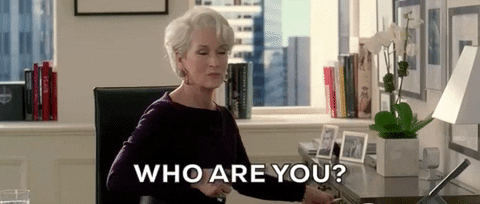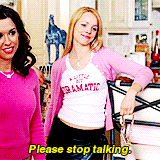The sun is finally making an appearance here in the UK. Cue picnics, pool parties, beach trips, festivals, wedding season…aaaand a whole load of other excuses for our inner critic to get louder.
No matter how excited we are to push that puffer jacket to the back of our wardrobe, summer can be a triggering time if you struggle with body image (which most of us do).
And, you guessed it, our inner critic is the one behind all that negative self talk. So today, we’re going to put this relationship under the psychology magnifying glass: how does our inner critic affect our body image?
Along the way, we’re also going to explore the body positivity movement, and whether it can really change how we feel about our appearance — or if it’s just another societal pressure.
Let’s get going.
What does negative body image sound like?
Poor body image affects pretty much everyone at some point in their lives. A report by the UK government found that 61% of adults and 66% of children feel negative or very negative about their body most of the time.
This negative self talk can manifest differently for everyone, and it can change over the course of our lifetime. But however it shows up, your inner critic is behind it.
Signs that your inner critic is impacting your body image:
You compare yourself to others, whether it’s friends, family, supermodels or people you follow on social media
You edit or take down photos of yourself on social media
You aren’t able to accept a compliment (you think “They’re lying” or “They’re just being nice”)
Your mood is impacted by how you’re feeling about your appearance
You use negative words to describe yourself e.g. “ugly”
You seek validation or reassurance from others
You feel shame or fear around gaining weight
You believe that if you were thinner/prettier/had bigger boobs you’d be happier
Chances are you’ve felt at least one of these things — because you’re human! Poor body image can and will affect most people, whether it’s to do with weight, shape, muscles, ageing or clothes size. In fact, it’s pretty much inescapable…
Where does negative body image come from?
Beauty standards fluctuate across generations, countries and cultures, but they’re deeply ingrained in our consciousness.
That’s because body image is shaped by lots of different influences, which — now more than ever — are all around us.
Particularly through social media, we’re receiving messages about our bodies all the time. It’s no wonder, then, that body image issues are on the rise among women and men.
What are the consequences of negative body image?
Poor body image and low self esteem can have a huge impact on our wellbeing and mental health.
The Good Childhood Report in 2021 showed that appearance was a leading cause of unhappiness among young people. Likewise, a survey by the Mental Health Foundation found that over a third of teenagers felt ashamed or upset about their body image, and just over one third of adults said they’d felt anxious or depressed about their body image.
However, poor body image is so insidious that it can be easy to underestimate the impact it’s having on your mental health. When you’ve spent a long time living with that inner critic’s voice in your head, body image issues can feel like a normal part of life. And in some ways, they are — but it’s important to recognise the signs that it’s holding you back from a fulfilling life.
For example, if you notice yourself cancelling plans or avoiding certain situations (a trip to the beach, shopping with a friend) because of your body image, it might be time to explore what’s going on.
Is body positivity the answer?
From ad campaigns, to Lizzo songs, to social media posts, you’ve probably come across body positivity before.
The body positivity movement (which is largely focused on women) has been growing in the past decade. It’s aim is to question the societal beauty standards imposed on us, and promote acceptance of bodies of all shapes, sizes, skin tones, genders and abilities. All fab stuff.
Yet although acceptance is the goal, body positivity tends to go beyond this, actively encouraging people to love and celebrate their bodies.
There have been lots of good outcomes from the body positivity movement, from individual empowerment to greater diversity in media and advertising. However, it’s worth pointing out that a) like other beauty standards, it can become a trend (one that we’re already seeing fall out of fashion) and b) the pressure to love yourself can put a different kind of strain on your inner critic, which we discuss here.
So if body positivity has worked for you, then that’s great. Equally, if you struggle to celebrate your body, that’s also fine.
As we’ve already talked about, disentangling our internal narrative from a lifetime of social conditioning about our bodies and appearance can be virtually impossible. It’s perfectly normal to feel tension between the desire to feel good about yourself vs that loud inner critic.
Sometimes, all we can do is accept this and acknowledge that simply being aware of these contradicting forces is a positive step in itself.
What can I do to improve my body image?
Because it’s such a complex issue, we’re not going to suggest any magic hacks or overnight fixes. And of course, if anything feels like it’s getting too much, please seek help from a medical or mental health professional.
The thing is, our inner critic will always be with us (no matter how much we tell him to f*ck off). Instead of trying to totally free ourselves from our body hangups, it can be more helpful to take a step back and explore our inner critic. Over time, this can help us take back some of its power.
Here are some tips:
Get curious about your inner critic.
Before you do anything else, get curious about your inner critic, and how it’s affecting your body image. What does it tell you? Who does it sound like — your mum, someone who bullied you in high school, Miranda Priestley? When did it first start?
Getting to know your inner critic will help you get better at managing it.
Don’t try to force self-love or body positivity if it doesn’t come naturally.
You might find it more useful to practice body neutrality instead.
If you want to make changes, do so from a place of acceptance.
While it’s important to be mindful of why you want to make changes to your body or appearance, it’s OK to make cosmetic or lifestyle changes, or healthier choices for your body.
Just make sure that you’re doing it from a place of self-awareness and self-acceptance — more on that here.
See if you can channel some inner kindness.
The inner critic is only one of the voices in our heads (a real party, hey?), so you can try to counterbalance its narrative with your inner kindness. If your inner critic is always vying for your attention and drowning out the rest, this inner kindness can be hard to locate.
But as a first step, try to imagine what you’d say if a friend came to you with the same insecurities. What would you say to them? Now try saying this to yourself.
Over to you
Body image affects us all differently and is a really nuanced topic, so we want to open up the conversation and share diverse perspectives.
What does the relationship between your inner critic and your body image look like? How has it changed over the years? And what do you think of current beauty standards? Let us know in the comments.
And if you haven’t already, don’t forget to subscribe to our weekly newsletter. Always packed full of psychology-based tips and insights. Always packed full of GIFs.








